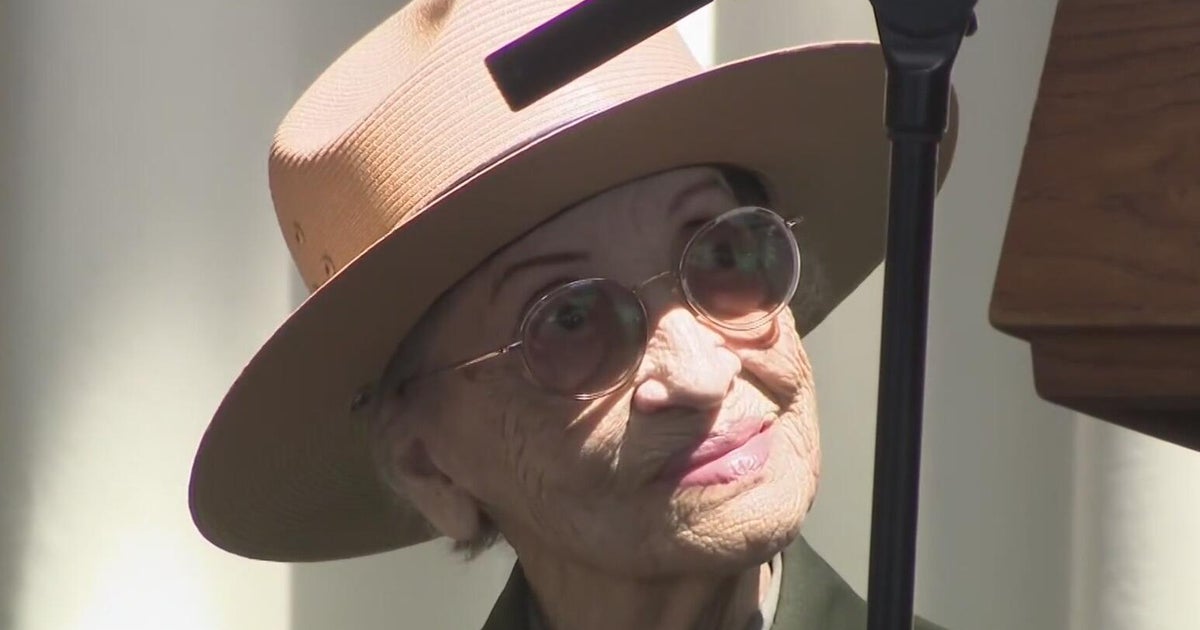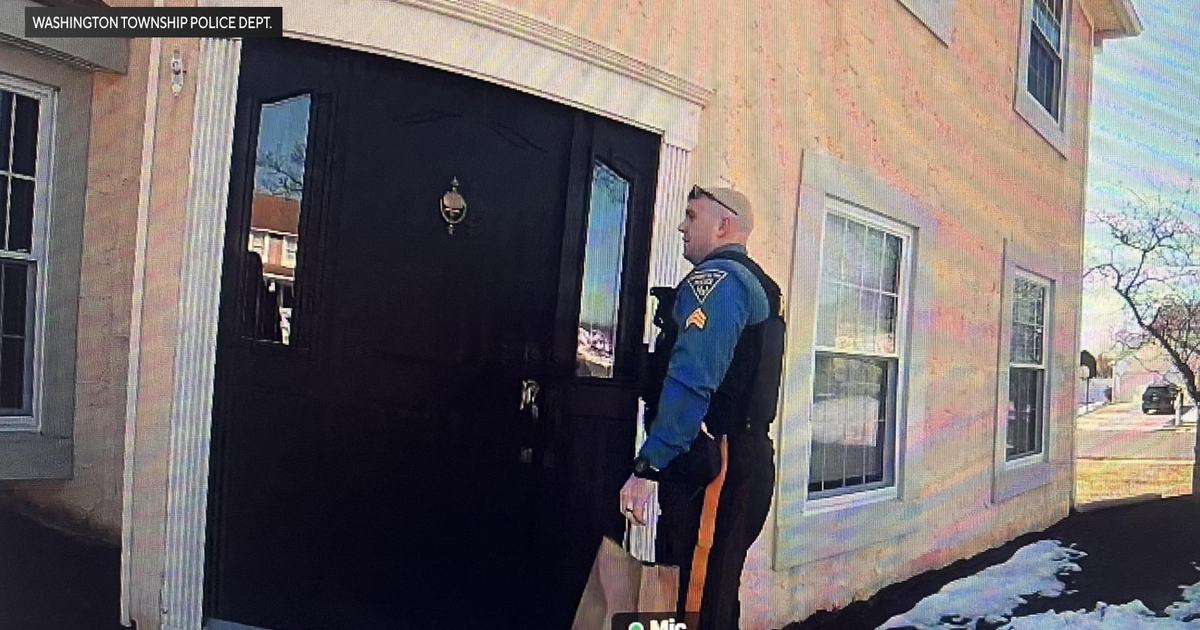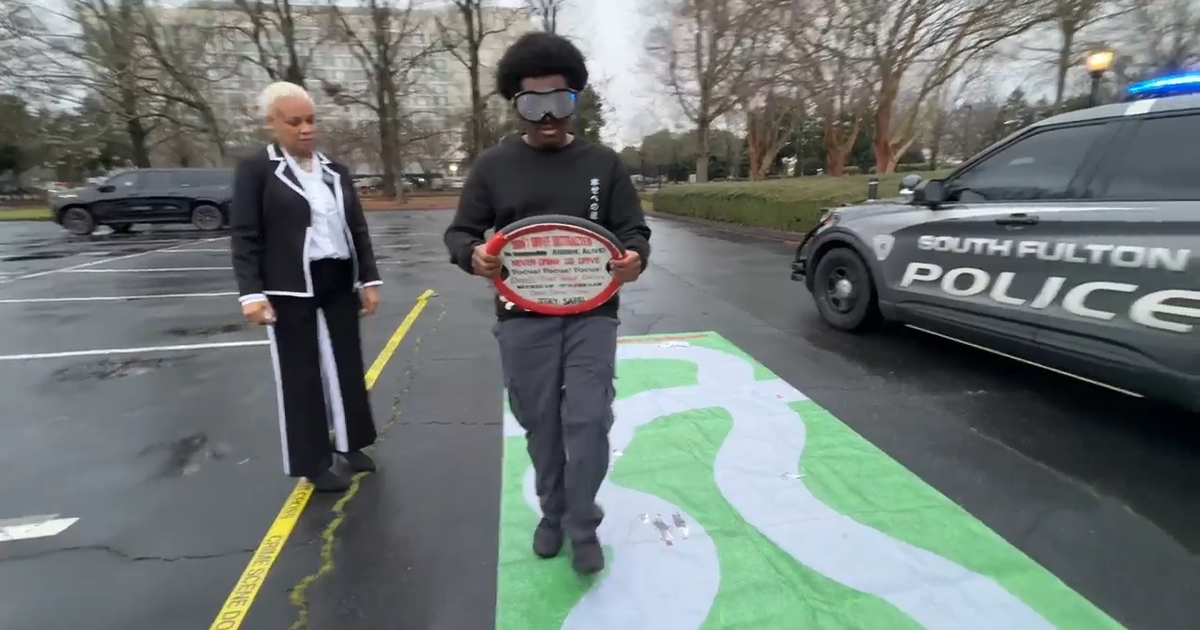California state parks celebrate World Ocean Week
MONTEREY - California State Parks is celebrating World Ocean Week this week with Parks Online Resources for Teachers and Students (PORTS), a free distance-learning program.
As part of the week-long celebration, State Park divers while underwater in Whalers Cove at Point Lobos State Park Reserve, south of Monterey, spoke Wednesday with the winners of the World Ocean Day logo contest for K-12 schools.
According to Brad Krey, PORTS program manager with California State Parks, those winning classes got a chance to talk directly with the divers underwater, ask them questions about what's unique and special about the underwater environment, and talk about their inspirations behind their logos.
"World Ocean Day is June 8, and it's something that's celebrated around the world. But the way we celebrate it here in California State Parks, is by doing as much outreach and education as we can," Krey said.
Throughout the week, activities include arts and crafts programs, story time read-along, PORTScasts and virtual underwater sessions with divers. Krey said they've been doing these from classrooms across the coast with topics like tidepools and jellyfish, in line with what they're learning in school. PORTScasts, created in 2020 in response to the COVID-19 pandemic, gives free, live, public broadcasts to students, teachers, and families.
"We interact with students either in-person or virtually, and then we try to bring that park to life for students who may not actually have a chance to visit that," Krey said.
The motivation this week, according to Krey, is to raise awareness for as many young students as possible so they think about their ocean, whether they live close to it or not. Thursday's events include a 30-minute live dive with two expert divers, who are scientists and enthusiastic about all things underwater, Krey said.
For Erika Delemarre, Marine Protected Area (MPA) project and outreach coordinator, diving came from a childhood love of the ocean.
"My passion is helping people connect with the ocean and understand why it's such a special place. And also it's very fragile," Delemarre said, connecting virtually from underwater and surrounded by a kelp forest. "There's a lot that we could do to help protect it. No matter whether you live along the California coast or you're hundreds of miles inland."
A few things are working against the ocean and it's driven primarily by humans, according to Delemarre. Overfishing, whaling, plastic pollution and climate change are some examples. The ocean is a carbon sink, absorbing carbon dioxide from the atmosphere and regulating the climate, but it can't do that constantly, Delemarre said. It's changing the chemistry of the ocean, making it more acidic and the ocean is also getting warmer.
Patrick Webster, a volunteer diver on the State Parks dive team who started diving in 2009 and was joining Delemarre underwater, said during his career that he has seen huge climate change impacts on the ocean but also people trying to make a difference.
"A lot of people all around the Peninsula, up and down the coast of California, into Oregon and beyond, are working to understand how we can help the kelp as the water continues to warm up," Webster said. "The kelp is so important for so many local fisheries, so many local industries that help support this coastline, and people are coming together."
Protecting 30% of Earth's lands, oceans, coastal areas, and inland waters is one of the global targets for 2030, often referred to as 30x30. It entails effective conservation and management of these areas with an emphasis on areas of particular importance for biodiversity and ecosystem functioning and services, according to the United Nations.
A lot of that does come down to decisions that national and state governments are making, like creating protected areas, according to Delemarre. For individual actions, it's about supporting what protections are in place and respecting them, for example not fishing or collecting shells in protected areas.
"When you throw something away, it doesn't really go away," Delemarre said. "If it escapes the trash truck, doesn't actually make it into a landfill. Chances are it's eventually going to head up here to the ocean. So doing things to reduce our plastic waste is also a great thing you can do to help."
According to Webster, there's a lot of power in the collective of each person in the community, when people help build stronger systems for protection.
"So wherever you find yourself in the world, if you're inland, if you're on the coast, if you're in the mountains, wherever you find yourself, getting involved about local community-based work helps protect that whole network that we're talking about with the 30x30," Webster said.
For Delemarre, the takeaway for World Ocean Day would be for people to realize that the ocean connects every living thing on the planet, and it is everyone's responsibility to do their part to take care of it.
"And I just think that everybody out there, you're going to hear a lot of very difficult things about what's happening to the global ocean. But it's still beautiful and resilient," Webster added. "And if we give it just a little bit of a chance, it can recover and stay strong."
With the PORTS program, Krey said, the response is positive because they provide real-world experience and examples of things that kids learn in the classroom. On Thursday, California State Parks will go live on Facebook and YouTube to connect viewers with divers and park presenters from all over California.







